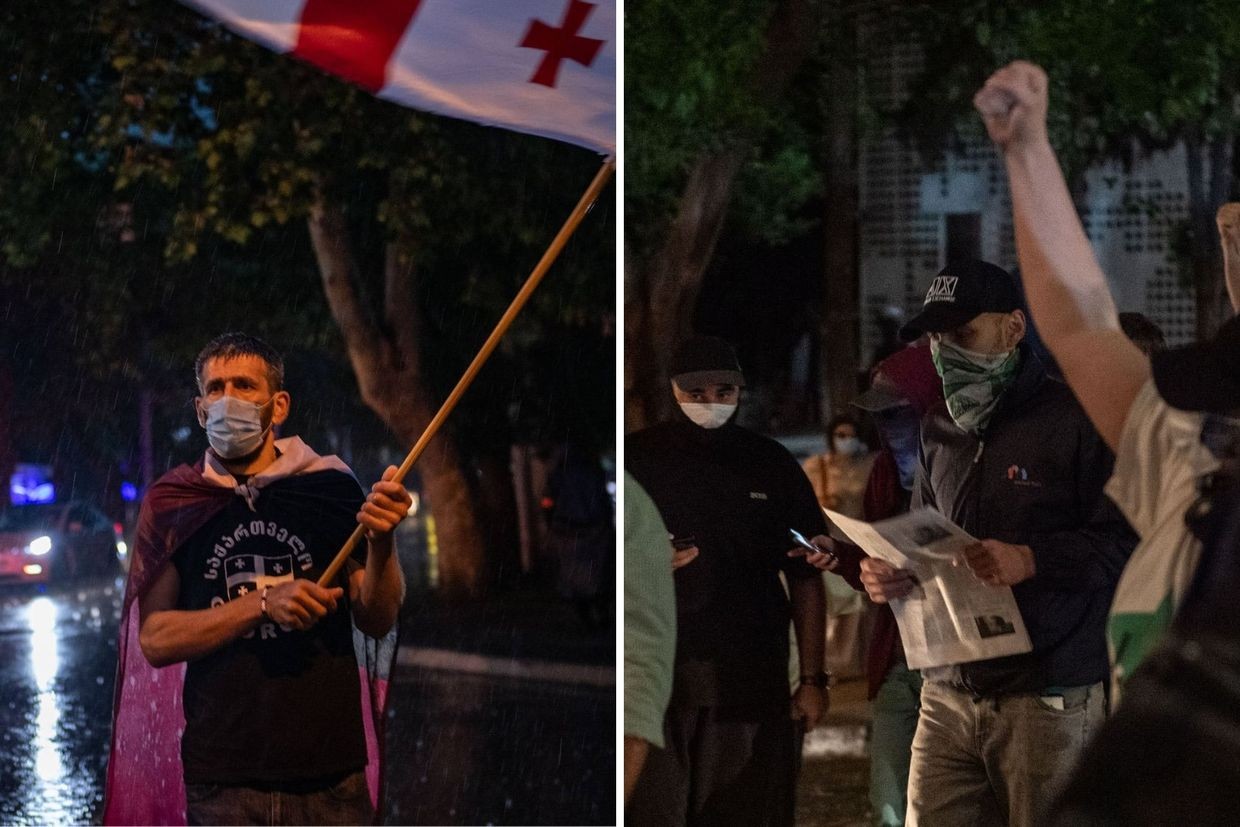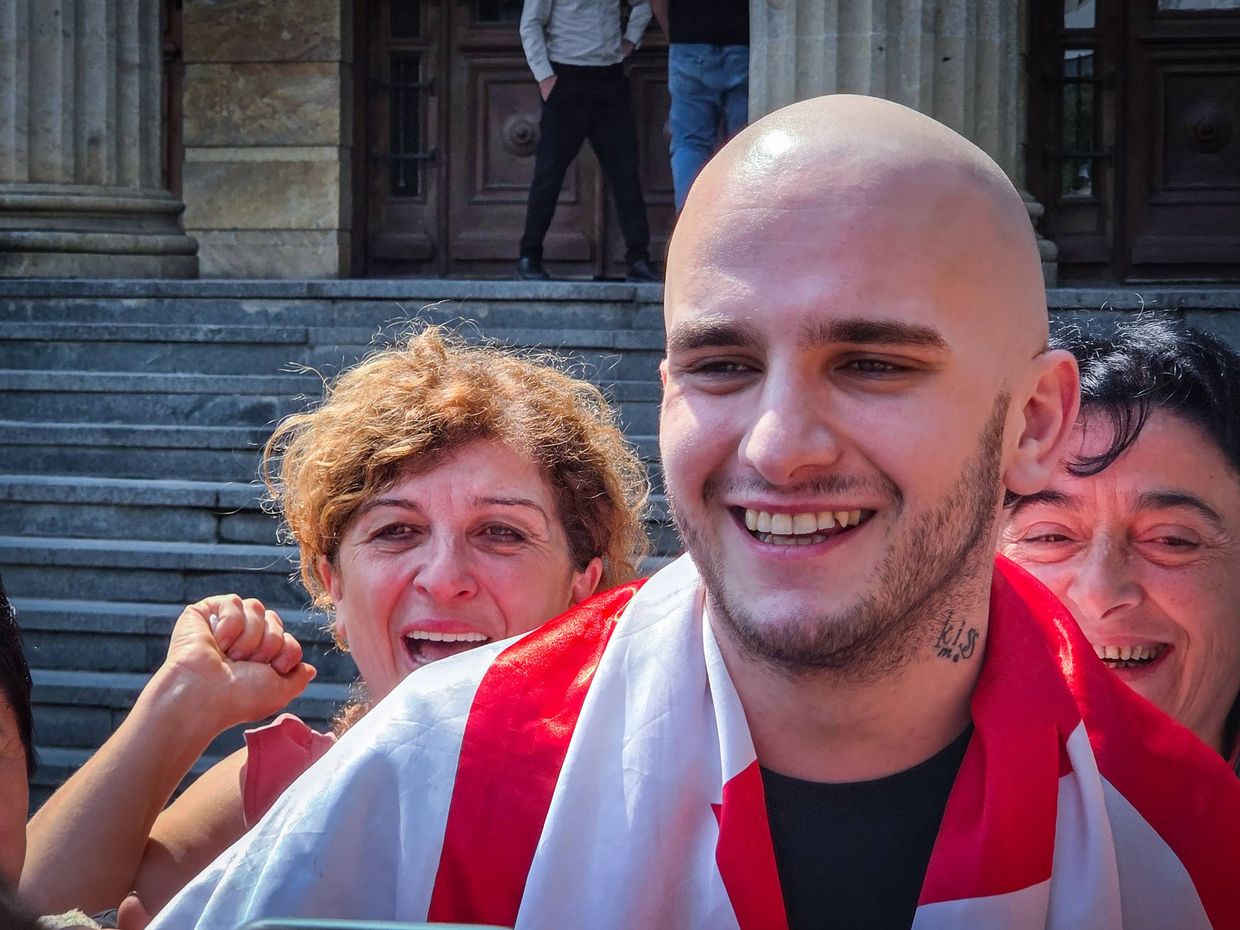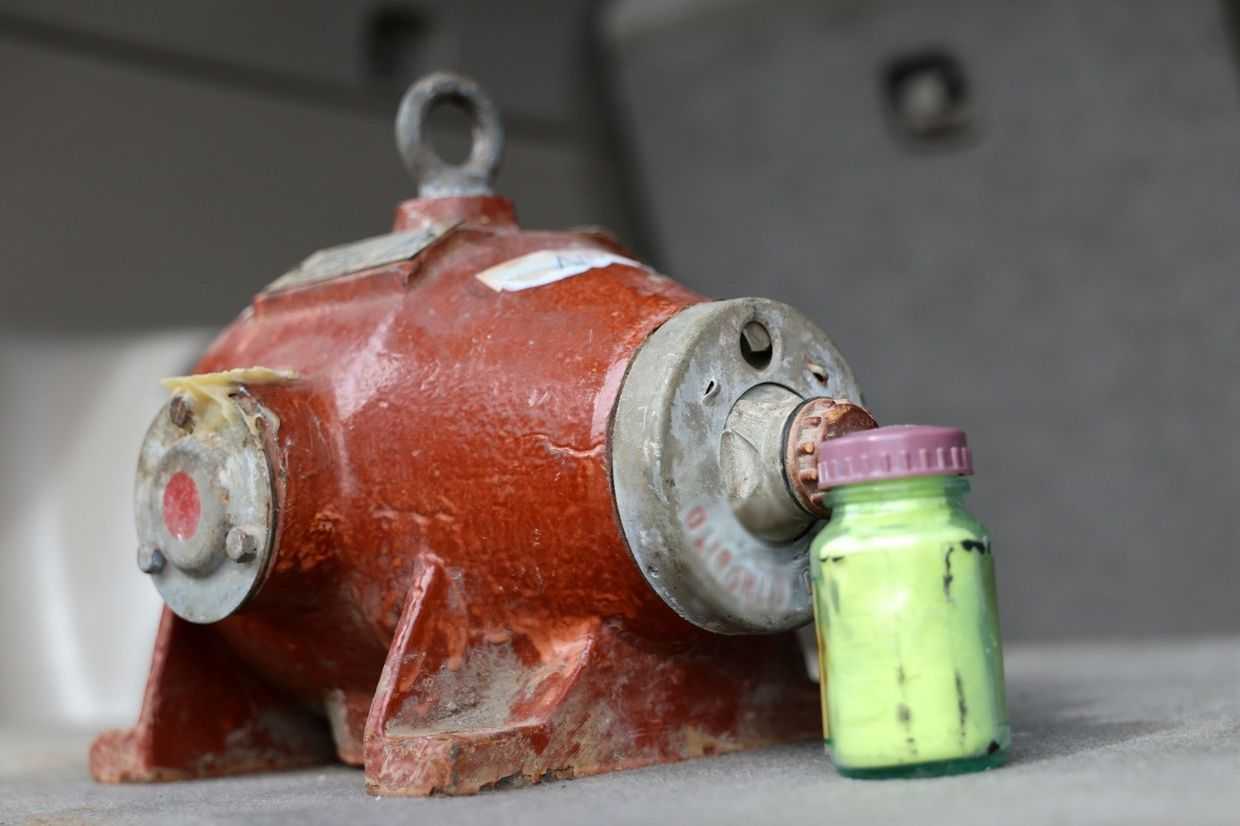
Georgian police have detained two more anti-government protesters on criminal charges in Tbilisi. Mindia Shervashidze and Tornike Toshkhua are accused of ‘group violence’ against a ruling party supporter, who, according to activists, staged a provocation during a protest.
The Interior Ministry announced the detentions on Saturday. According to the statement, both protesters were jailed in relation to an incident that took place on 1 August on Tbilisi’s Rustaveli Avenue outside parliament, the traditional site of daily anti-government demonstrations.
The statement was accompanied by a video showing a person being pushed and kicked by two individuals, who, according to the Interior Ministry, were Shervashidze and Toshkhua. The second part of the video showed the two being taken into a police station.
Both detainees face up to two years in prison if found guilty.
The incident was first reported shortly after it occurred, including by government supporter Beka Gotsiridze, who, according to police, was the target of ‘group violence’.
Gotsiridze, an ex-footballer who frequently insults opponents of the ruling Georgian Dream party on social media, said in a video posted on TikTok on 3 August that while he was moving near parliament, protesters recognised and ‘swarmed’ him.
In the same video, Gotsiridze claimed that they ‘couldn’t do anything’ to him.
‘Do I have anything showing that I’m beaten? I swear on my child, they couldn’t do anything […] they couldn’t beat me, and I swore at their mothers’ pussies’, he added, repeatedly insulting government opponents and threatening them.
‘Soon we’ll drive you out [from Rustaveli Avenue] […] we’ll fuck your mothers’, he said.
‘Two more political prisoners’
After the detention of Shervashidze and Toshkhua, anti-government activists claimed that Gotsiridze himself staged the provocation.
Luka Gogia, who said he witnessed the incident, wrote on social media on Saturday that Gotsiridze, with a knife in his pocket, appeared near parliament at night when ‘the crowd was visibly thinned’, and began insulting people.
‘[Then he] turns back, waves his hand, then moves his hand toward his pocket, where he has a knife’, he said.
Speaking to OC Media on Monday, Gogia said that during the confrontation, when Gotsiridze fell, a knife fell out of his pocket.
‘Then the police took [Gotsiridze] out as if he were the victim. If I had entered anywhere with a knife, I would be the offender, not the victim. I don’t understand this double standard’, he added.
Gogia published a photo of a folding knife, which he said Gotsiridze had with him, as well as a video showing police escorting Gotsiridze away from protesters. According to him, the demonstrators were urging the police to take the knife from the scene as evidence.
The detentions were also commented on by lawyer Saba Brachveli, who was not present at the scene that night but who is actively involved in the protests.
‘Gotsiridze arrived on Rustaveli Avenue with a knife in his pocket and loudly swearing, started the fight himself, and the police detained the people who took the knife from him, then handed him over to the officers’, he said.
According to him, the protesters eventually succeeded in having the police file a report concerning the knife.
Criticising the police’s actions, the opposition party Droa stated that ‘Georgia now has two more political prisoners’.
In response to the detentions, some government critics recalled previous hostile incidents toward protesters.
Lika Zakashvili, an editor at Publika, wrote on Facebook about a case in which two individuals holding a machete and baton confronted demonstrators in February. One of the individuals was only given a verbal warning, while the other received an administrative fine.
‘Mindia and Tornike, meanwhile, are accused of group violence, which carries a penalty of up to two years in prison’, she said.
The night after the detention of Shervashidze and Toshkhua, on Sunday, activists reported that two more demonstrators were detained near parliament. They were taken by police towards the end of the protest that day.
The Interior Ministry later said that both were administratively detained on charges of disobeying police and petty hooliganism — offences frequently used to detain protesters.
The latest wave of protests in Georgia began on 28 November, when Georgian Dream announced the suspension of the country’s EU membership bid. The first phase of demonstrations saw heavy clashes and brutal police violence against protesters and journalists.
Hundreds of people have been detained, with criminal cases launched in over 50 instances. Several individuals have already been convicted and sentenced to years in prison. Their release — along with calls for new parliamentary elections — has become one of the demonstrators’ central demands.











